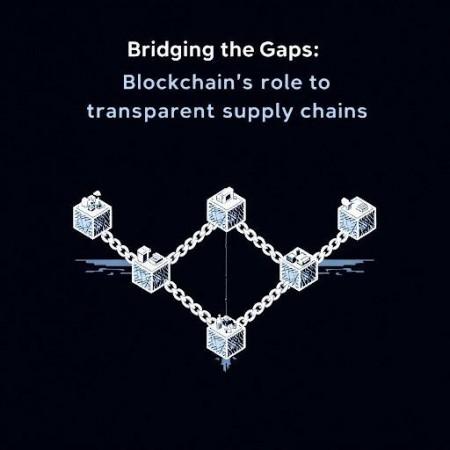
In an era where supply chain transparency is a growing necessity, innovative technologies are reshaping how businesses manage operations. Alok Sarkar, an expert in enterprise technology, delves into the potential of blockchain integration with cloud-based enterprise resource planning (ERP) systems to address long-standing challenges in supply chain visibility.
The Transparency Challenge in Modern Supply Chains
Modern supply chains are increasingly complex, spanning multiple tiers of suppliers and crossing international borders. Despite advancements in digital infrastructure, businesses struggle with fragmented visibility and inefficient compliance tracking. Traditional ERP systems, which often operate as centralized databases, have limitations in capturing external data beyond direct suppliers, making end-to-end traceability difficult.
Blockchain as a Game-Changer for Supply Chain Visibility
Blockchain technology offers a decentralized and immutable ledger system that ensures data integrity across all supply chain stakeholders. By integrating blockchain with cloud-based ERP systems, businesses can create a unified and verifiable record of every transaction, eliminating discrepancies caused by manual documentation and siloed data management.
Smart Contracts: Automating Compliance and Processes
One of the most impactful innovations in blockchain-driven supply chains is the implementation of smart contracts. These self-executing contracts automate condition-based transactions, reducing the need for manual oversight. For example, smart contracts can be programmed to release payments upon verified delivery, ensuring prompt transactions while minimizing administrative delays.
Enhancing Supply Chain Security and Authenticity
Counterfeit goods and unauthorized modifications pose significant risks in industries such as pharmaceuticals and luxury goods. Blockchain's cryptographic security ensures that all product records remain tamper-proof, providing an authenticated history of goods from their origin to the final consumer. This added layer of trust benefits both businesses and consumers, reducing fraud and increasing brand credibility.
Real-Time Decision Making with Integrated Data Flows
Traditional ERP systems operate through periodic data updates, creating lags in decision-making. By incorporating blockchain, companies gain real-time visibility into inventory movements, supplier commitments, and compliance statuses. This continuous monitoring allows businesses to respond proactively to supply chain disruptions rather than reacting after the fact.
Choosing the Right Blockchain Deployment Model
Businesses must carefully evaluate blockchain deployment models to maximize integration efficiency. Private blockchains offer high transaction speeds and centralized governance, making them suitable for internal operations. Consortium blockchains, on the other hand, facilitate multi-party collaborations by allowing multiple stakeholders to participate in a shared verification system. A hybrid approach can also balance security, transparency, and scalability.
Regulatory Compliance and Consumer Expectations
Blockchain-driven transparency is becoming a legal necessity with increasing regulatory requirements around ethical sourcing and environmental impact. Governments worldwide are mandating strict supply chain documentation, and blockchain integration provides an automated and verifiable method for meeting compliance standards. Furthermore, consumer demand for ethically sourced products continues to grow, and blockchain enables businesses to offer verifiable information on sustainability and fair trade practices.
Overcoming Implementation Challenges
While blockchain integration presents numerous benefits, organizations must address data standardization, system interoperability, and stakeholder adoption challenges. Establishing uniform data models and secure API connections between blockchain networks and ERP platforms is crucial for seamless operation. Additionally, businesses must invest in training and change management to ensure smooth adoption across supply chain participants.
In conclusion, by leveraging blockchain technology and cloud-based ERP systems, businesses can achieve unprecedented supply chain transparency, efficiency, and security. This seamless integration empowers companies to move beyond conventional tracking methods and embrace a future where every transaction is verifiable, compliance is automated, and trust among stakeholders is strengthened. Additionally, it enhances real-time data accuracy, reduces fraud, streamlines operations, and minimizes disruptions. Alok Sarkar's framework provides a strategic roadmap for organizations seeking to transition towards this innovative supply chain ecosystem, paving the way for more resilient, agile, and accountable global trade networks.















